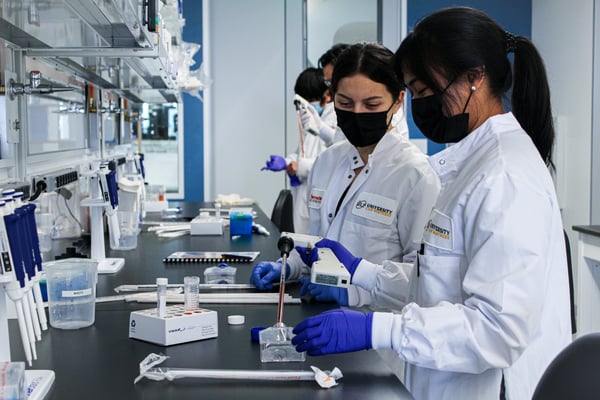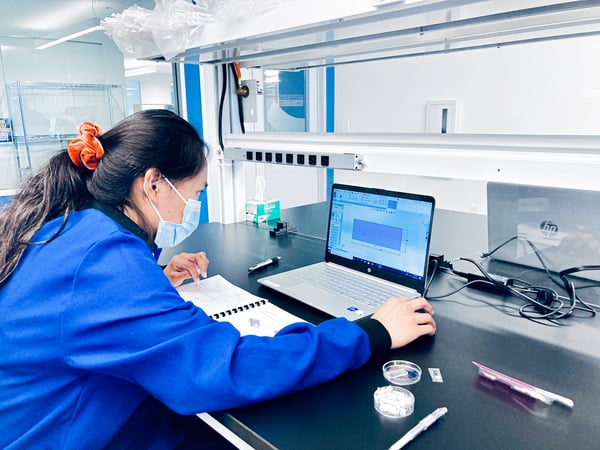Learn how to stand out as an applicant in the new age of college admissions.
Long gone are the endless Saturdays spent pouring over prep books and taking endless practice SAT tests. As ivy league schools and top universities shift to test-optional admissions policies, students are applying to schools once perceived as out of reach. Before test-optional admissions, an admitted student at Princeton University has a SAT scores in the range of 1460-1570 or ACT score between 33-35. Eliminating the requirement to submit test scores has increased application by 29% to private school and 17% to selective universities. For the 2020-2021 admission year, University of Pennsylvania received over 56,000 applications, a 34% increase while Harvard University received 57,435 applications for 1,980 admissions spots in their freshman class. Similarly, the UC system application rate rose by 18% with UC Berkeley receiving more than 112,000 applications, a 28% increase from the previous year.

Recently, the UC system announced the end of standard test scores use in admission decisions. “UC will continue to practice test-free admissions now and into the future,” UC Provost Michael Brown stated at a Board of Regents meeting. Previously UC considered using a statewide assessment of how well 11th graders mastered California’s core curriculum, known as Smarter Balanced, as an alternative standard test. However, the Academic Senate committee concluded the proposed Smarter Balance would “likely come at the same cost as the SAT,” with the same “inequities in opportunities to learn across California schools that are pronounced by race and socioeconomic status.”
Without standardized test scores and the continuing trend of high school grade inflation (average GPA increased by 0.38 points over the last 8 years), it is becoming very difficult for colleges to differentiate between applicants.
So how do you stand out in a test-optional admission world?
One way to stand out to college admission officers is to show a demonstrated passion, an intellectual curiosity that expands beyond the classroom. According to Diane Anci, VP for Enrollment and Dean of Admission and Financial Aid at Kenyon College, we want students …who pursue their interest with energy and enthusiasm.” “[We’re looking for students] who emphasiz[e] depth of commitment over breadth of resume.” Spending your free time to further your knowledge shows a genuine interest in your intended college major. Many universities and non-profit organizations such as UCI, University Lab Partners, and YARD Sciences, provide hands-on classes in biology, biomedical engineering, engineering, math, and computer science. Performing volunteering work or starting your own club is a strong indicator that you will share your enthusiasm with the campus community.
🔬 Learn more: Exploring Careers in Biotech

Seeking out experiences in your potential field of interest not only show demonstrated passion but leads to career exploration. If you are interested in becoming a lawyer, join a Mock Trial club where you present a simulated court case before a panel of judges. Through virtual programs such as Endevvr and Medical Innovation, Research & Entrepreneurship (MIRE), aspiring entrepreneurs learn from industry experts what it takes to start a company.
Universities look for applicants who challenge themselves academically by taking AP, Honors, Accelerated, or IB courses. A high school transcript full of advanced courses is seen favorably by college admission officer. Princeton University admission page clearly recommend taking advanced courses to demonstrate college readiness. “We consider it a promising sign when students challenge themselves with advanced courses in high school. We understand that not all secondary schools offer the same range of advanced courses, but our strongest candidates have taken full advantage of the academic opportunities available to them in their high schools.” If your school doesn’t offer advance courses, consider taking classes at a community college.

College essays hold more weight more than ever before; personal essays and short answer responses may account for 10-30% of the admission decision. Choose a prompt that allows you to describe yourself in an authentic voice. “Everyone has their own narrative, and it is up to the student to go deep and find it,” explains Christine Chu, a private college counselor. Don't list off your strengths or accomplishments; show your passions, uniqueness, or future career goals in a thoughtful, reflective prose that resonates with the readers. Good essays connect with the reader in a lasting manner.
The pandemic has permanently changed the college admission process. Test-optional and test free admission processes led to record application rates at top universities. High GPA and test scores are no longer the keys to gaining admission to selective schools. Successful applicants show their strengths inside and outside of the classroom by:
Download The Ultimate Guide to Wet Lab Incubators in Southern California, a handbook to assist life science start-ups through the entire decision-making process to find wet lab space.
Download Now